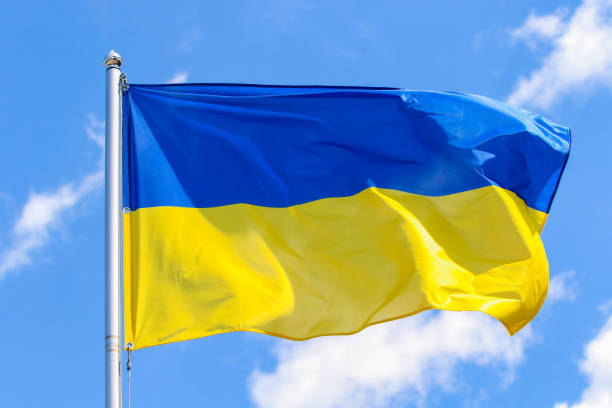
Russia’s invasion of Ukraine has led countries to tear up their timelines to transition from fossil fuels. In their quest for more secure energy supplies, they are simultaneously rushing toward and away from oil, gas and coal.
For the near term, many countries are leaning even more on fossil fuels. They are in a race to lock up enough supply from non-Russian sources, including more coal, to ensure that they can heat homes, power factories and transport goods over the next few years.
At the same time, many, especially in Europe, are accelerating plans to switch to green energy such as wind and solar power. The goal is to meet climate targets as well as permanently reduce exposure to oil and gas supplies that are geopolitically volatile. Some are revisiting nuclear power.
“It has to be a twin track,” said Louise Kingham, the UK business head for oil giant BP PLC.
The energy shock tied to Russia’s war on Ukraine is testing nations’ resolve to rapidly reduce carbon emissions to combat global warming, as more than 190 nations have pledged to do under the Paris agreement. The international pact aims to limit global temperature increases to below two degrees Celsius by the end of the century, compared with preindustrial levels.
The shock comes on top of rising inflation, snarled supply chains and other problems related to the pandemic that already threatened the global economy. Prices of oil, gas and other vital commodities have surged further since the outbreak of war. While European leaders have been reluctant to place sanctions on the Russian energy supplies that the continent relies on, French President Emmanuel Macron called for such a move recently, citing evidence of war crimes in Ukraine.
Some energy executives and advisers say the current crisis provides an overdue reality check on the challenge of replacing the fossil fuels that the world still heavily relies upon, and will likely need to meet demand for years to come.
“You can’t get renewables on stream fast enough for the pace of sanctions,” said Roberta Downey, a London-based partner with law firm Vinson & Elkins LLP who is focused on energy infrastructure.
- Chamisa under fire over US$120K donation
- Mavhunga puts DeMbare into Chibuku quarterfinals
- Pension funds bet on Cabora Bassa oilfields
- Councils defy govt fire tender directive
Keep Reading
Among those who say the turmoil could ultimately hasten the world’s transition to cleaner energy is Larry Fink, CEO of asset-management giant BlackRock Inc. “I believe that recent events will actually accelerate the shift toward greener sources of energy in many parts of the world,” he wrote in his annual letter to shareholders.
The crisis is most urgent for Europe. For years, Germany and other countries chose inexpensive Russian supplies over imports from the US and elsewhere. Russia recently provided around 40% of the gas that Europe uses to heat homes and make electricity.
The US now plans to boost liquefied natural gas shipments to Europe, aiming to ship 50 billion or more cubic metres a year through at least 2030, to help meet the continent’s demand.
“We’re serious about decarbonising while providing reliable energy that doesn’t depend on foreign adversaries,” US Energy Secretary Jennifer Granholm recently told an energy conference in Houston. “That means we can walk and chew gum at the same time.”
Weaning Europe off Russian supplies remains a monumental—and expensive—task. Divorcing the European Union from Russian gas imports would require additional annual spending of at least €170 billion (about $187 billion) on renewable-energy production over six years, or about 1.3% of the bloc’s gross domestic product, researchers at German insurer Allianz SE estimated. Even at that price, it rated renewables as the cheapest path to European energy self-reliance.
Days after Russia’s invasion of Ukraine, German Chancellor Olaf Scholz reversed course on decades of national energy policy and said the country would build two new liquefied natural gas import terminals, boost stockpiles of the fuel and gradually shift energy purchases away from Russia. German officials have said they might prolong the use of coal-fired power plants, which the country had planned to shut down by 2030.
Germany’s Federal Ministry for Economic Affairs and Climate Action proposed speeding up a range of green-energy plans, including expansions in land and offshore wind resources and solar-power projects. The country has moved up its goal to reach almost 100% renewable electricity to 2035 — 15 years ahead of its earlier target.
The war has triggered emotional pleas from European politicians and environmentalists who see Russia’s aggression as the clearest reason yet to cut use of fossil fuels that financially support President Vladimir Putin’s government.
“They don’t produce solar panels or wind turbines,” said Borislav Sandov, Bulgaria’s deputy prime minister for climate and environmental policy, of Russia. “Instead they produce fossil fuels, which we have to phase out.”
That has created new opportunities for companies and investors pitching green energy solutions, such as Australian billionaire Andrew Forrest, chairman of Fortescue Future Industries, the renewable-energy unit of miner Fortescue Metals Group Ltd.— The Wall Street Journal










